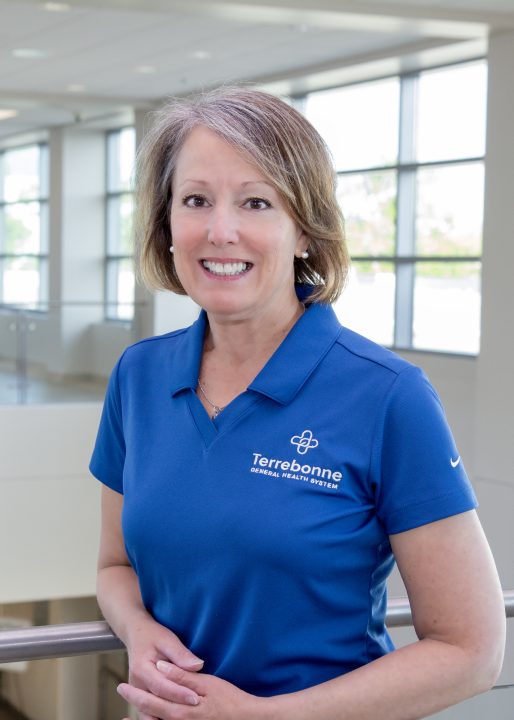Training tomorrow’s workers: Nicholls stays ahead
September 28, 2016
Local teams see no hope in sight for trampled fields
September 28, 2016As companies continue drilling offshore for the resources that power the nation, they turn to a school in Schriever for the people that power their work.
Fletcher Technical Community College has been a cornerstone of vocational training in the Bayou Region since 1951. The school’s Integrated Production Technology program, located in the back building at the Schriever campus, is Fletcher’s backbone to oil and gas workforce training.
Herbert McCoy, interim director of the IPT program, said Fletcher has continued to update IPT, even in the face of challenges in both the private and public sectors. The school has revised its curriculum over the past year, which has “enhanced the program a whole lot,” according to McCoy. Fletcher has also added equipment from another trade school to implement a small electronics lab so students can further turn skills learned in the classroom into hands-on experience.
The new electronics lab is meant to complement the larger IPT lab, featuring a host of modules and simulators students practice on both during class and in their spare time. Once a student has proven his or her proficiency on a simulator, he or she is allowed to come into the lab and get extra work in on their own, with a student worker there to supervise. The lab features an advanced process trainer, one of the most critical at Fletcher, which lets students take charge of a complex process to separate oil from water and gas. The lab also has a pigging model, meant to show the techniques required to clean sediment buildup from pipelines.
The goal of the time in the classroom and the labs is to have students ready to join the oil and gas industry after two years’ and 63 credits’ worth of learning. McCoy said the coursework is basic training for a production operator position, an entry-level position on a production platform. A production operator is responsible for maintenance and repair of equipment, particularly those separators that separate water and oil from each other. POs ensure those production processes continue running smoothly and address issues as they arise.
However, Fletcher’s oil and gas program has not been without its own challenges. The slumping oil price has hurt the oil and gas industry and the larger economy of the Bayou Region. At the same time, the state has cut higher education funding, leaving schools to cut their own services or pick up the tabs. With less money in each family’s pocket, less financial aid from colleges and the state and a weak oil industry sparking doubt in work availability, students must make hard choices on trade education.
Those choices have manifested in an enrollment drop at Fletcher’s IPT program. According to McCoy, this fall semester’s enrollment of 142 students is down about 35 students from last fall’s number. He said those numbers are subject to change, as some first-year students are only taking core courses at Fletcher at the moment and are thus not considered part of the IPT program yet. However, he acknowledged the role the down market has played in decreasing IPT enrollment, but said the faculty’s message has been one of hope. With most IPT instructors having decades of experience in the oilfield, they are used to the cyclical nature of the market, and they are trying to pass on those lessons to the students at Fletcher.
“We’ve all been through these up and downs. We’re able to relay that to the students and let them know this field has its ups and downs, but the greatest benefit of it is once they complete this program and are available, the companies are ready. Because the companies will start up again,” McCoy said.
Two students who have heeded the faculty’s message are Levi Boudreaux and Nicole Arceneaux. Boudreaux, from Thibodaux, was working offshore for two years as a roustabout. However, he came to Fletcher because he felt a degree could advance his career, where he hopes to be a PO at a refining plant onshore. He said the current malaise is disheartening, but the ups and downs of the market necessitate proper financial planning.
“You kind of don’t want to see that, because when it was booming you know you could get a quick job and make a good bit of money set on the side, but you know it’s going to come up,” Boudreaux said. “It went down already. It’s just when it comes up, you just make your money and know you’ve got to save it. Because you never know when it’s going to be another time like this.”
Arceneaux, from Morgan City, comes from a family of oil and gas workers. Her father works in the oilfield, her brother is a welder at a plant and her cousin is a crane operator, also at a plant. She said she would like to get into safety work at a plant, which the IPT program helps prepare her for, but she also knows her Fletcher degree gives her a fallback option if layoffs are made.
“Whenever the oilfields are booming, you’ve got to work your butt off, and whenever it’s not here, it’s hard to find a job. Your job’s more protected when you’ve got a degree, also, because that’s what they look for,” Arceneaux said.
The two students’ optimism around the viability their learning brings highlight another selling point McCoy made about IPT at Fletcher: the skills learned at Schriever can be applied across a wide array of jobs.
“The things that they learn for production operation for oil and gas, the technology is transferable into other fields,” McCoy said. “Dealing with machines, dealing with pumps, with valves, it’s transferable to other things: plumbing systems, sewer systems, electrical power plants. So, they got other options.”
Edward Zeringue is part of the team preparing students for whatever options may occur. He teaches an electrical class at Fletcher, with different problems featuring different conversions up on the projection screen. Students in the class work as one large group, with 15 or so of them talking with each other about the formula for each conversion and yelling the answer when they think they have it. As Zeringue affirms or denies if they are correct, others chime in with their own answers or say they came up with something different. Zeringue asks them about their process, making sure each student understands how to reach the correct answer before moving on. According to Zeringue, the class is key for students’ work in the labs, when they have to convert electric currents to pressure as they get hands-on practice.
Zeringue noted the difference in today’s workforce training from when he started in the 1970s. Back then, most workers were just thrown into the field and asked to either learn from others or pick it up on their own. Now, increasing trade school enrollment means most workers head to the oil and gas sector with conceptual frameworks and comfortability with equipment. He said this training will prove critical as the Great Shift Change, where Baby Boomers retire and young workers take their place, occurs in the coming years.
“You take from (Baby Boomers) leaving, because we’re leaving in the next 15 years, that’s a lot of people retiring, so you’ve got to make up that gap in educational learning,” Zeringue said. “So, this school here just makes up some of that gap. I don’t say 100 percent, but we try to get as high as we can and as good as we can so they can have some tools to go out there and work with.” •








